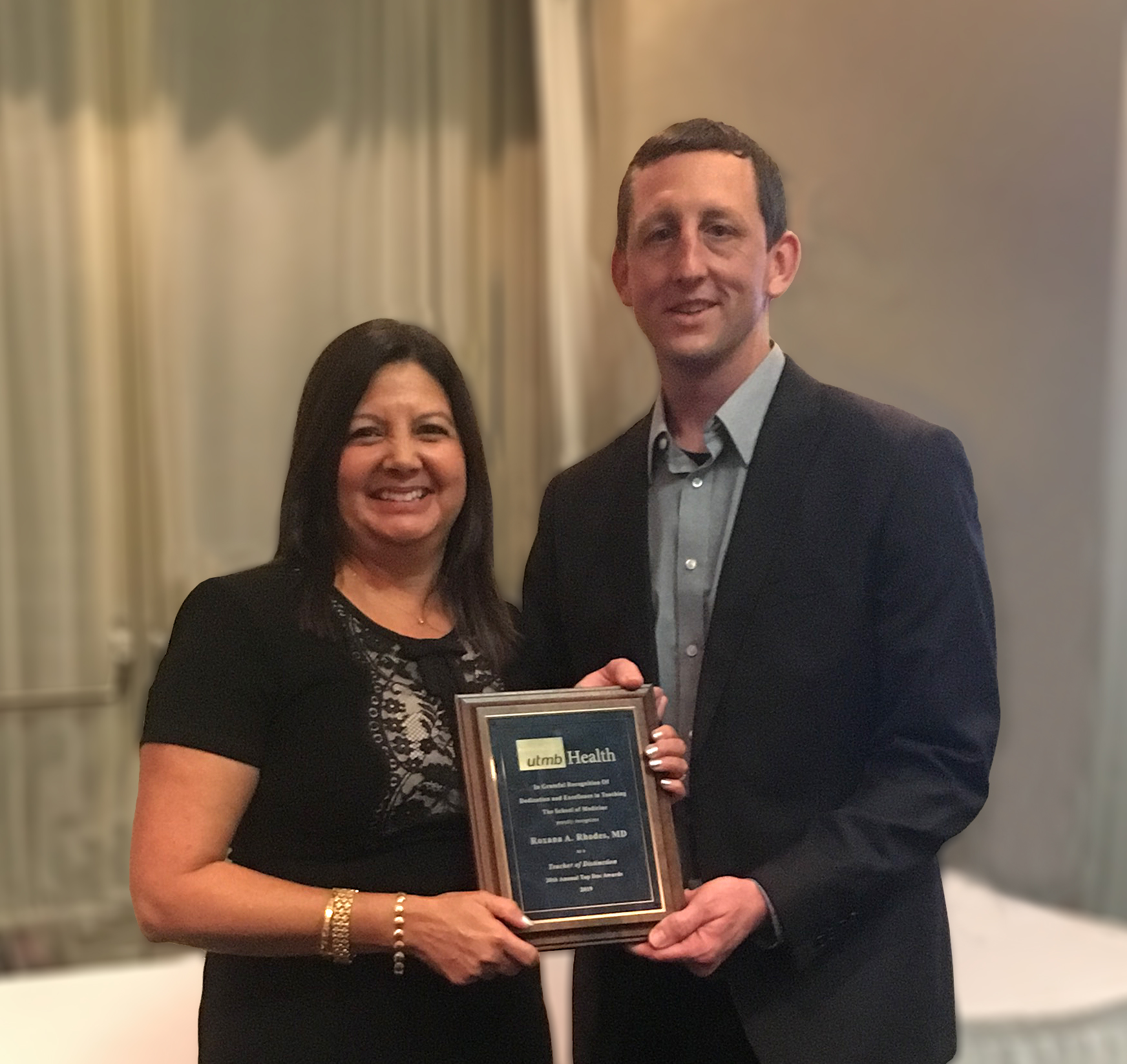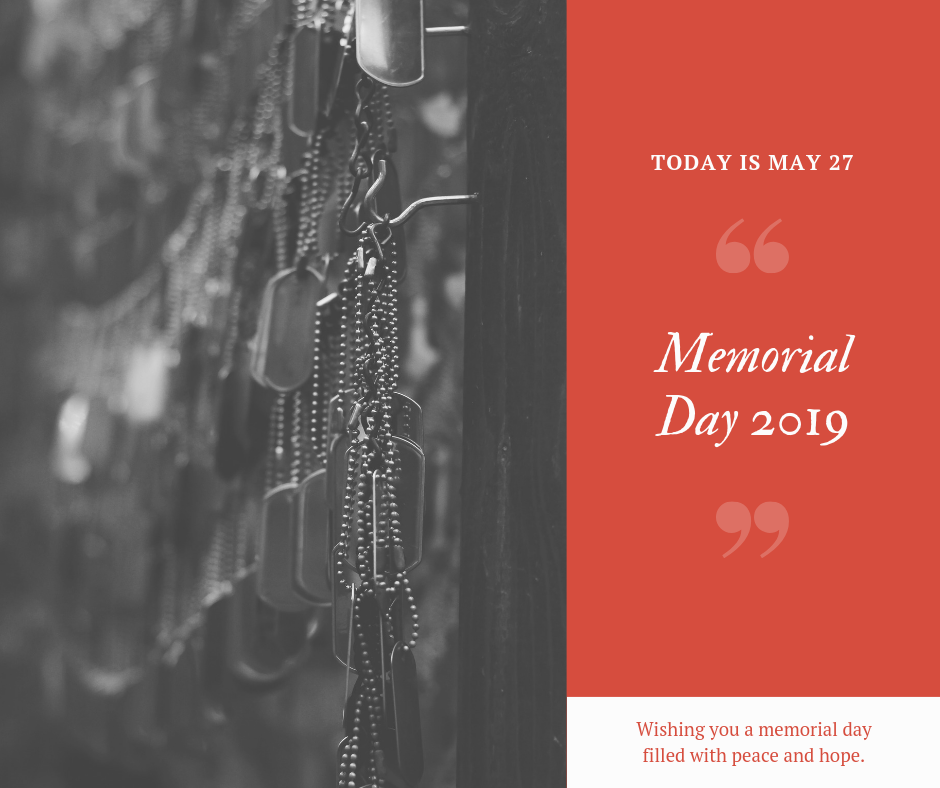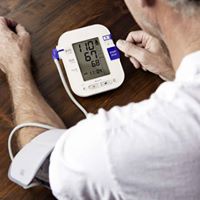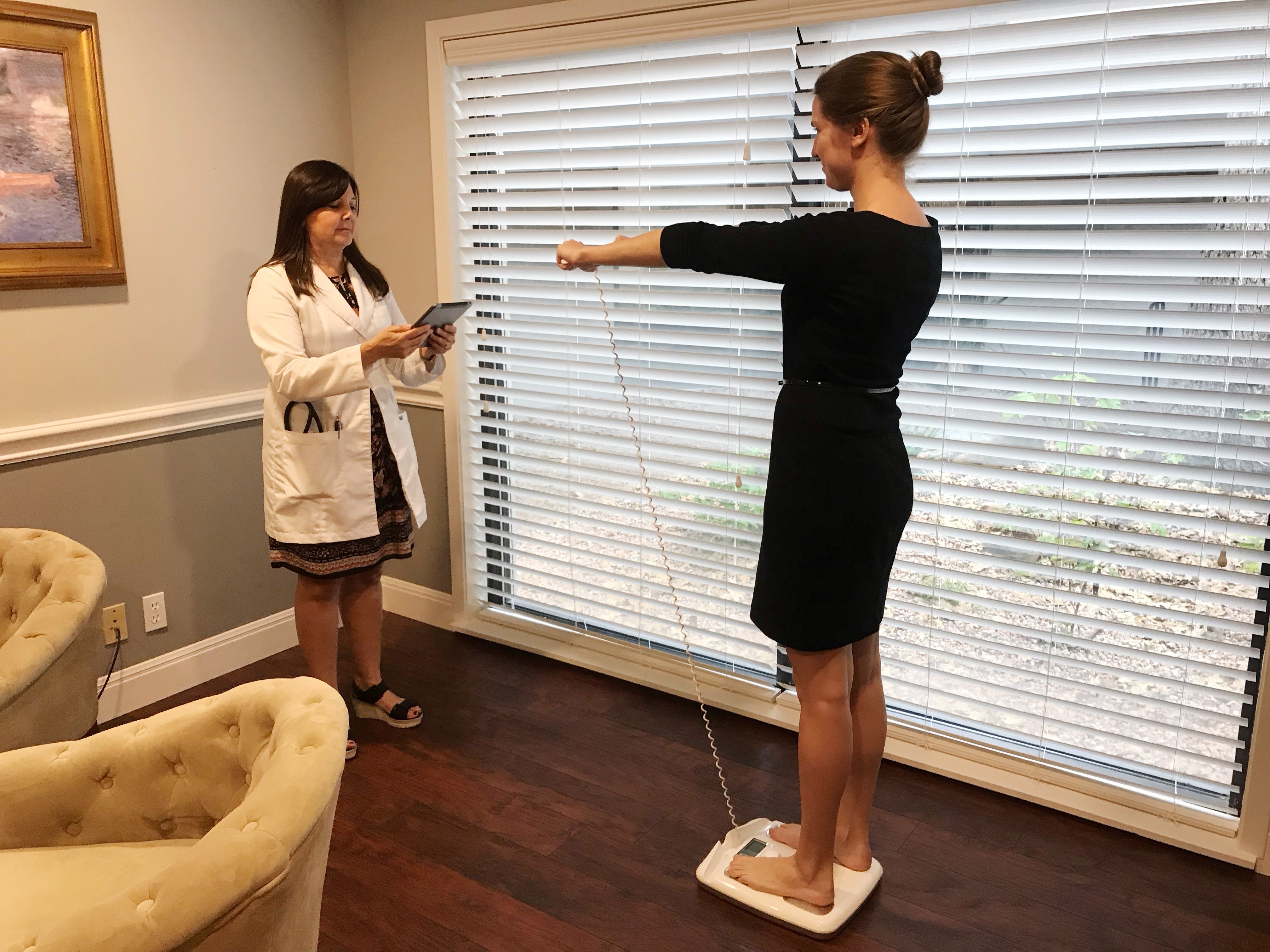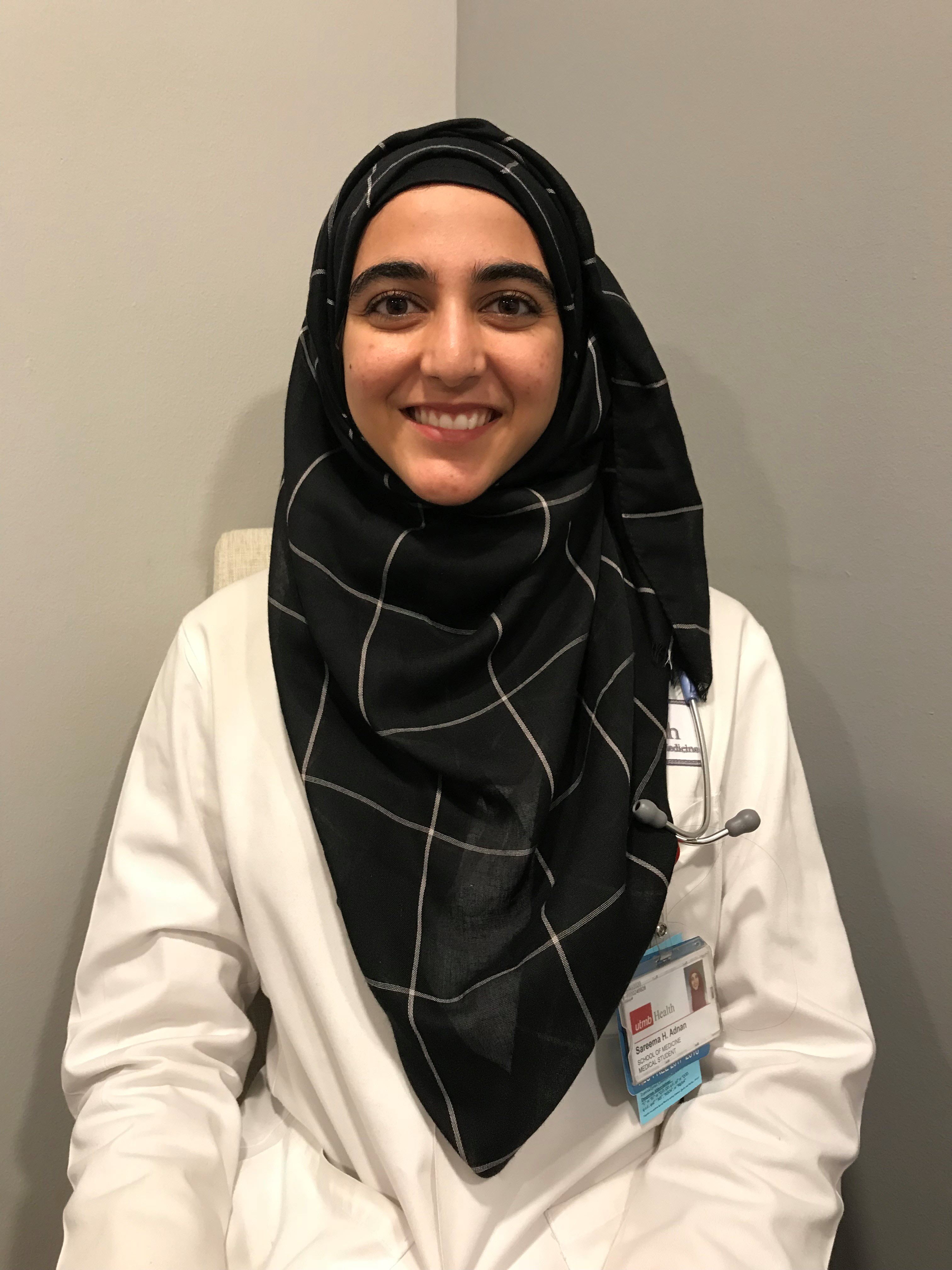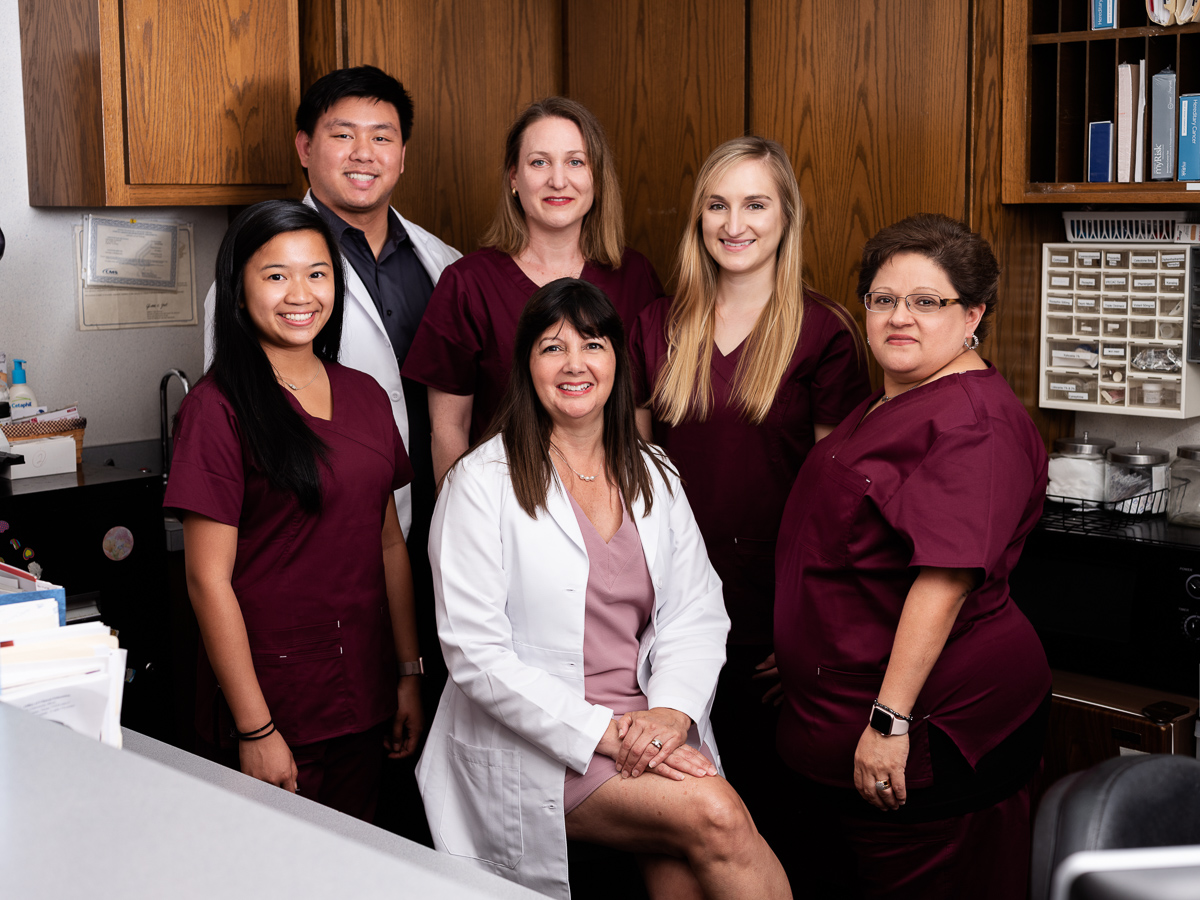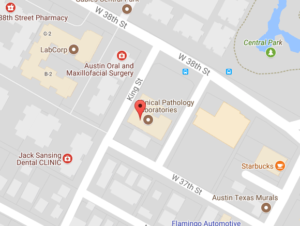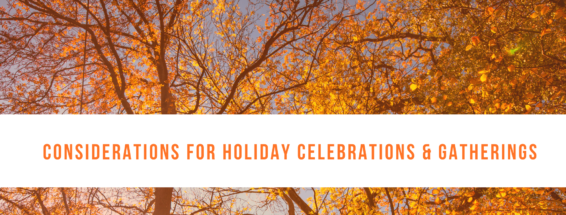
The COVID-19 pandemic has been stressful and isolating for many people around the country. The upcoming holidays can be an opportunity to gather and reconnect with family and friends. This holiday season, consider how your plans can be modified to reduce the spread of COVID-19 to keep your loved ones and communities healthy and safe.
Unfortunately, COVID-19 activity is rising throughout the U.S. and gatherings are a significant contributor to the rise in cases. Please keep the following considerations in mind during small gatherings to slow the spread of COVID-19. These guidelines are meant to supplement, not replace, any state or local health and safety regulations, with which all gatherings must comply.
Celebrating with members of your own household, who are consistently taking measures to reduce the spread of COVID-19, poses the lowest risk. Members of your household is anyone who currently lives and shares common spaces in your housing unit, including family members and roommates. People who do not currently live in your housing unit, including college students who are returning home from school for the holidays, are considered part of different households. In-person gatherings that bring together individuals from different households, including students returning home, pose varying levels of risk based on several factors:
- Community levels of COVID-19: High or increasing levels of COVID-19 cases in the gathering location, as well as in the areas where attendees are coming from, increase the risk of infection and spread among attendees. Family and friends should consider the number of COVID-19 cases in their community and in the community where they plan to gather. Information on the number of cases in an area can often be found on the local health department website.
- Exposure during travel: Travelers can be exposed to the virus in the air and on surfaces in airports, bus stations, train stations, public transport, gas stations, and rest stops.
- Location of gathering: Indoor gatherings, especially in areas that are small, enclosed, with no outside air, pose greater risk than outdoor gatherings. Increase ventilation by opening windows and doors to the extent it is safe and feasible based on the weather, or by placing continuous circulation of central air. Host outdoor rather than indoor gatherings as much as possible, and try to implement mask wearing when not eating or drinking.
- Duration of the gathering: Gatherings that last longer post more risk than shorter gatherings. Being within 6 feet of someone who has COVID-19 for a cumulative total of 15 minutes or more greatly increases the risk of becoming sick and will require a 14-day quarantine.
- Number and crowding of people at the gathering: The size of a holiday gathering should be determined based on the ability of attendees from different households to stay 6 feet apart, wear masks, maintain hand hygiene, and follow state and local regulations.
- Behaviors of attendees prior to and during the gathering: Individuals who have consistently adhered to prevention behaviors (social distancing, mask wearing, handwashing, etc.) pose less risk than those who have been less consistent in practicing these safety measures. Gatherings with more safety measures in place pose less risk than gatherings with fewer or no preventive measures implemented. Attendees should avoid direct contact, including handshakes and hugs, with individuals not from their household. At gatherings that include people of different households, everyone should wear a mask that covers both the mouth and nose, except when eating or drinking. It is also important to stay at least 6 feet away from people who are not in your household at all times. Encourage attendees to wash their hands often with soap and water. If soap and water are not readily available, use hand sanitizer that contains at least 60% alcohol. Try to avoid singing or shouting, especially indoors.
Do not host or participate in any in-person gatherings if you or anyone in your household:
- Has been diagnosed with COVID-19 and have not met the criteria for when it is safe to be around others
- Has symptoms of COVID-19
- Is waiting for COVID-19 test results
- May have been exposed to someone with COVID-19 in the last 14 days
- Is at increased risk of severe illness from COVID-19
Extra tips to ensure a safe and healthy gathering:
- Limit contact with commonly touched surfaces or shared items such as serving utensils.
- Clean and disinfect commonly touched surfaces and any shared items between use when feasible.
- Use touchless garbage cans if available. Use gloves when removing garbage bags or handling and disposing of trash. Wash hands after removing gloves.
- Plan ahead and ask guests to avoid contact with people outside of their households before the gathering.
- Do not let pets interact with people outside of the household.
- Bring extra supplies to contribute to the gathering if possible, such as extra masks, extra hand soap or hand sanitizer.
- Get your flu vaccine, as it is an essential part of protecting your health and your family’s health this season. Gatherings can contribute to the spread of other infectious diseases.
If you are exposed to COVID-19 during a holiday gathering, while traveling, or at any time, quarantine yourself to protect others and follow these guidelines.
Thanksgiving may look different this year, but we encourage approaching the holidays with an open mind. Consider the above guidelines to protect your families and friends, and to ensure a season of good health. Thank you to all of our patients for their continued cooperation in slowing the spread of COVID-19.

